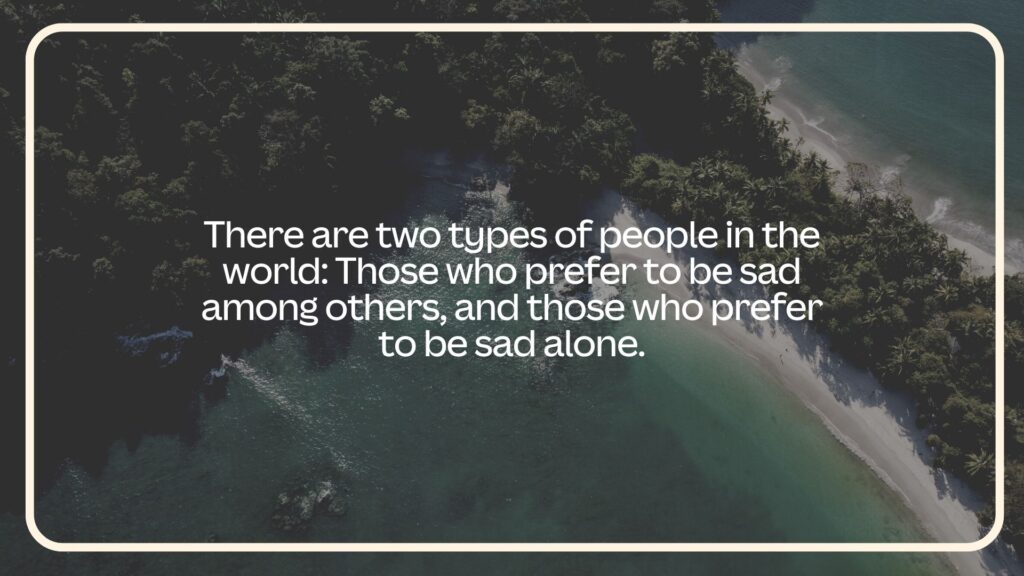As I was browsing the other end of the internet I found this quote: “There are two types of people in the world: Those who prefer to be sad among others, and those who prefer to be sad alone.” And I thought, a lot of us like sadness and not to forget the fact that the sad stories, especially the sad love stories (for example, Romeo & Juliet, Titanic) have the greatest appeal! If you look at the greatest love stories across the world, you will see most of them are incomplete and ends in tragedy. I have been pondering over that for a while now. What is it that makes us, human, value the tragedies more than the happily ever after? It is also quite evident that we do not want to revisit those tragedies ever again after we are through but why do we hang onto those stories more than others? Growing up, we all have felt the pangs of remorse, unrequited love, demise of puppy love or crush. We have also gone through the ecstasy of being in love, jumping on cloud nine and all that. But looking back, you will see that the sad memories have found a place in the core memory while the happy ones are often difficult to recall. Apart from the tragedies, I also found the incomplete stories, the ones that ends in a cliff hanger, where the author leaves the ending for the readers to draw also to have similar kind of appeal. And most of us end the stories on a sad note.
Is it us, the humans, find pain and sorrow more interesting as an emotion? When we are happy, we do not register them as vividly as the sad ones. The science says that as humans, we experience sadness more intensely than happiness which they termed as negativity bias – a tendency of our brains to register negative emotions or feelings more strongly than happy memories. And that kind of explains why we often act in a manner detrimental to our cause – it can be self-sacrifice, choosing the wrong option out of guilt, pride, or vanity. In fact, some research has reported that we often overwhelm ourselves with sad stimuli intentionally to cope with reality.
Let me give you an example, I was having this discussion with a friend who said that she listens to sad songs as a way to make peace with her emotions and through these songs, lyrics and tunes, she is able to make sense of what she is feeling and express herself which she otherwise would not be able to do. In agreement with this, a research by Garrido and Schubert (2011), stated that sad music is associated with understanding feelings and engaging in a process of catharsis. When we drown ourselves in sorrow, our brain activates areas that trick us feeling soothed. And that is a chain, we often cannot break. It becomes addictive and we keep on taking wrong decision, as a tragic protagonist, to feel good about ourselves.
I am sure you have heard this song by a-ha (in case it does not load: here is the link to YouTube). It captures all I wanted to write and more. Human brain is amazing, but suicidal. No wonder we make so many bad choices.
